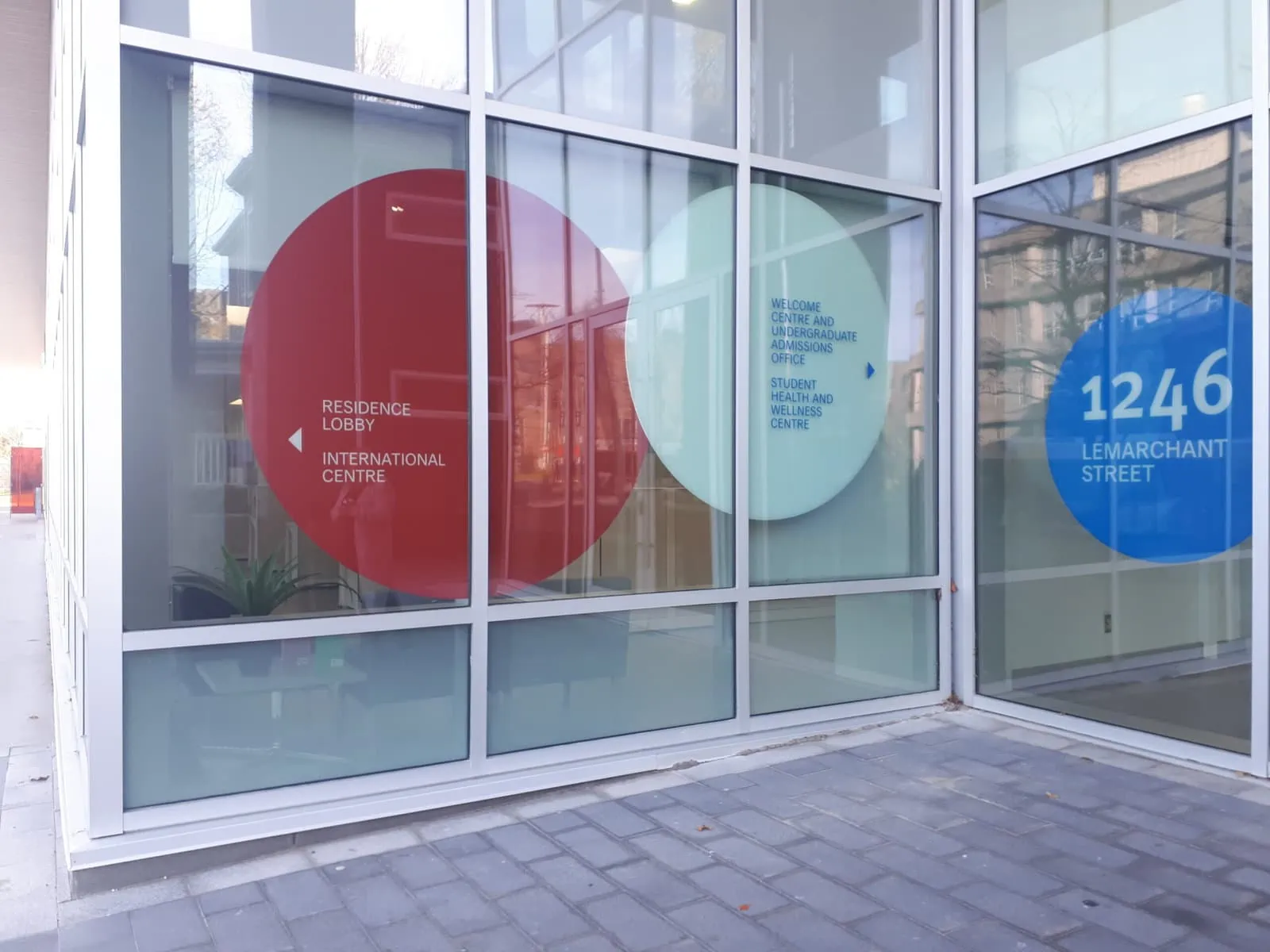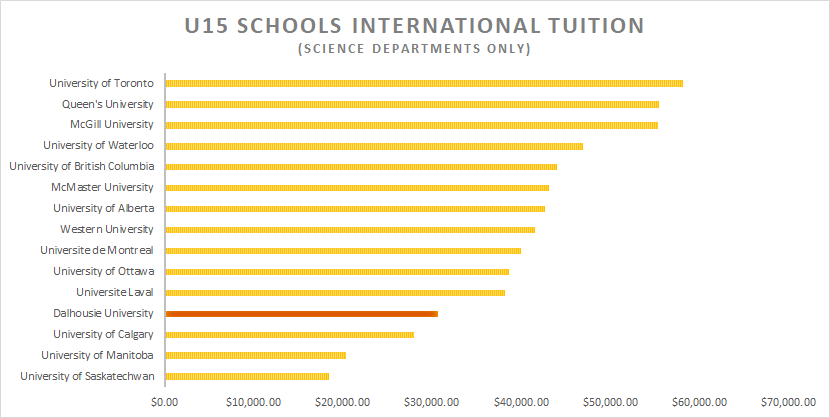Dalhousie University has proposed to increase international tuition by almost 16 per cent for the 2023-2024 school year.
Earlier this fall, Dalhousie University proposed a tuition increase and tuition guarantee for international students entering Dal studies next year. By proposing a tuition guarantee for incoming international students, their tuition will remain the same for each year they study at Dal.
This guarantee aims to provide “international students and their families with more clarity and confidence in the cost of their degree program – cost certainty in the face of external factors like inflation,” as discussed in the proposal.
What is Dal proposing?
The guarantee will only impact international students studying in the faculties of agriculture, arts and social sciences, computer science, engineering, management and science. These faculties have a higher proportion of international students than other faculties.
This guarantee would only impact international students entering Dal for the 2023-2024 school year. Current international students’ tuition will continue to be subject to changes, such as inflation, much like that of domestic students.
According to the document, Dal views its low international tuition compared to other schools in the U15 Group of Canadian Research Universities as a failure to be competitive nationally and offer sufficient support to international students.
Proposed tuition increases will depend in part on the faculty a student studies in. As of now, the faculty of agriculture’s international tuition is expected to rise from $22,437 to $25,950. The faculty of sciences and arts and social sciences are proposed to increase to $31,900, from their respective $26,613 and $25,458 totals.
The engineering faculty will see the highest tuition in the coming school year, with its tuition rising from $29,660 to $40,800. That’s a 37.6 per cent jump.
Overall, the combined tuition hike will be about 15.6 per cent.
Additional increases will be determined annually, based on budgetary consultation by the university.
Dal said it wants to use the increase in revenue through the tuition boost to better support international students on campus. It plans to put the money into merit-based scholarships and bursaries for international students and to increase funding for student financial assistance programs.
Dal also hopes to hire additional faculty and staff in the impacted faculties to support international students better, such as student advisors.
Students’ responses
Dalhousie Student Union (DSU) President Aparna Mohan isn’t impressed with this proposal or how it’s been handled by the university.
“There is a rush to get this in front of the board [of governors] because admissions for next year open soon,” she said.
While Dal is open to student feedback, Mohan said Dal is rushing through the process. As a result, she said that’s a reason students were given little notice of the consultation meetings that took place over Microsoft Teams on Oct. 14 and Oct. 17.
“With how disruptive this term has been, it seems to be intentional that they’re using this as a distraction to push this through.”
During the most recent Dalhousie Board of Governors meeting on Oct. 18, the international tuition fee proposal discussion was held in-camera, or in private. Mohan therefore, couldn’t provide much insight into the questions asked during that portion of the meeting. But she’s heard students’ thoughts.
“Even though current international students aren’t impacted by the increase,” she said, “they feel that this is a profound injustice. People are looking for support in building resistance.”
Shivam Chauhan, the international student representative with the DSU, echoed Mohan’s sentiment during the DSU’s Oct. 25 council meeting. He asked what could be done to counter the increases and better inform international students about Dal’s proposal.
The DSU is looking for a way to respond collaboratively and productively with Dal, especially in ensuring that Dal adheres to its promise to support international students, as outlined in its proposal. Mohan said the DSU sees Dal’s track record of keeping promises to international students as shaky, citing the last time there was a tuition increase in 2019.
“Part of our response is to pressure Dal to adhere to its promise [of] international student support,” Mohan said.
The DSU is considering protesting the increase, similar to in 2019. That protest saw students participating in a 48-hour sit-in in the Dal president’s office. The DSU hopes to garner more grassroots student advocacy this time. It is working with the Dalhousie International Student Association to create an in-person town hall to ensure that the Dal administration hears student voices.
“We can never guarantee outcomes with advocacy,” Mohan added, “but what we can do is ensure that the outcome is favourable by using favourable and productive channels.”
Dal will present the proposed international tuition model to the board of governors on Nov. 22, the last board meeting before the end of the fall semester.
Header photo: A shot from outside the Dalhousie International Centre at LeMarchant Place. (Angela Capobianco)



Recent Comments